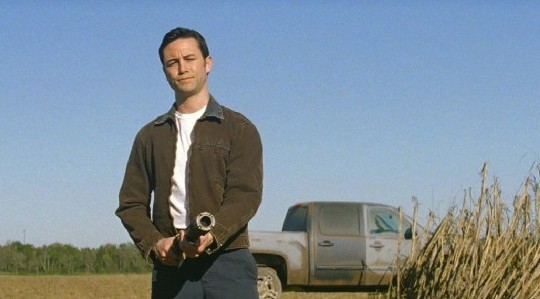
Looper
This reading, ‘Theories Of Action, Double-Loop Learning, And Organizational Learning’ by Chris Argyris, was very broad, and was a bit of a struggle to get through, perhaps in part due to constantly being reminded of the movie ‘Looper’.
I think the main message that I found in the reading was that of the distinction between the so called ‘single-loop’ and ‘double-loop’ learning, with the former described by Argyris as “like a thermostat that learns when it is too hot or too cold and turns the heat on or off”. Single-looping is when the given plans or rules are adapted to the situation, rather than being question.
In contrast to this, ‘double-looping’ involves questioning these variables specifically, and subsequently leading to improvements or alterations.
I think it is obvious that the intention of Networked Media is to encourage us to utilise this ‘double-loop’ learning rather than ‘single-loop’, through creating our blogs, actively questioning the content, unlectures and readings, and changing and adapting these things to suit what we want to get out of the subject. As Adrian stating in the first unlecture, much of the content for this forum is as-yet undecided, and based around our own questions and issues.
A robot or machine can easily and simply be programmed to perform single-looping learning, as emphasised by the thermostat metaphor, but we us humans can fully utilize double-looping when we think for ourselves and actively scrutinize things, even the course itself.

